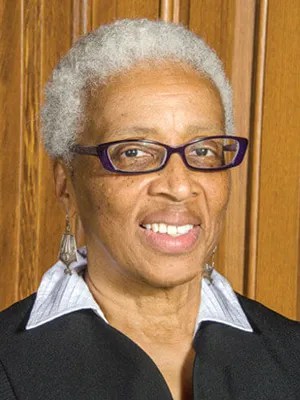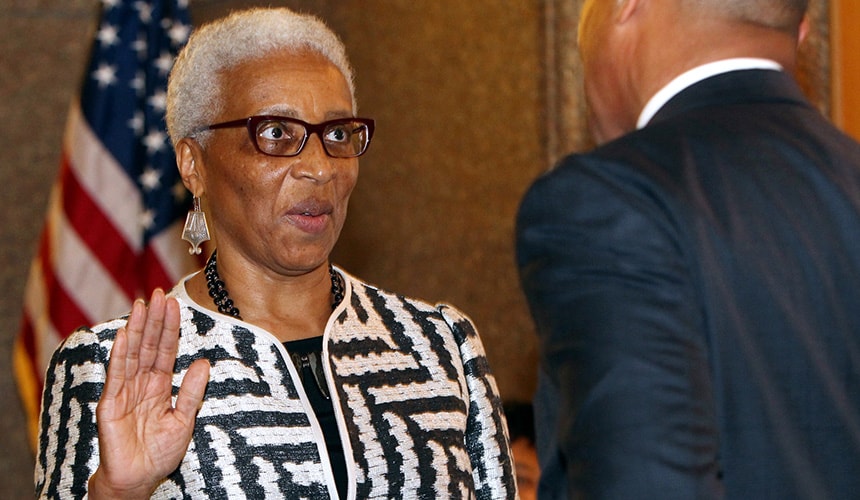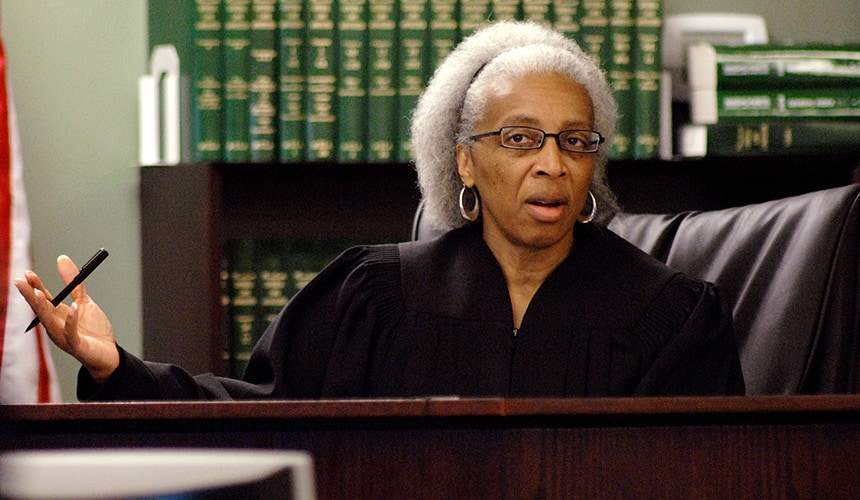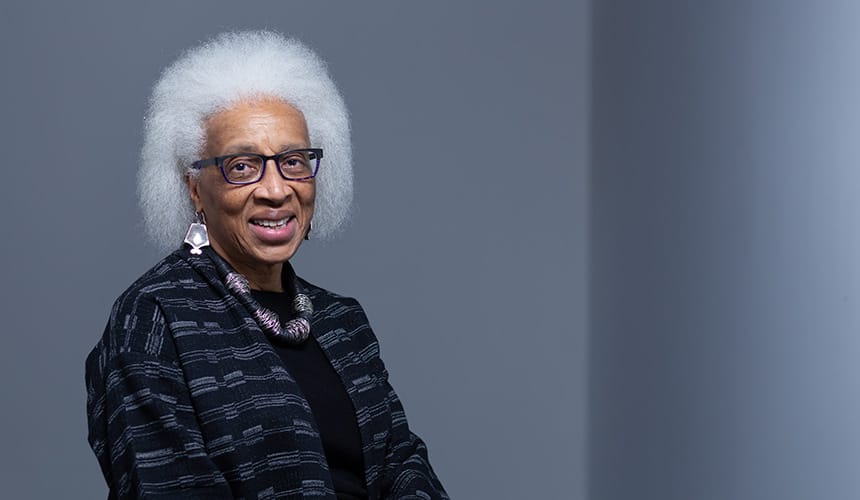Geraldine Hines
On Her Own Judgement
In 2014, when Massachusetts governor Deval Patrick was preparing to appoint an associate justice to his state’s supreme court, he had many attorneys to choose from. Geraldine Hines JD1971 wasn’t the obvious choice. Her career included the sort of things that lawyers try to avoid if they want to be appointed to the highest offices: she was a defense attorney, she advocated for the rights of the poor and the marginalized, and she spoke up about how the judiciary lacked diversity.
Patrick picked her anyway, making Hines the first Black woman to serve on the Massachusetts Supreme Court.
Born in the Jim Crow–era Mississippi Delta, Hines says she didn’t experience a majority-white community until she went to the UW for law school. “My first real exposure outside of the Black community was Madison,” she says. “At my college, we did have interactions with white folks. We had white professors, but that was not the norm. So when I came to Madison, it was a little bit of a culture shock, and everything was different from anything I had ever experienced.”

Recruited to the UW, Hines didn’t initially intend to pursue a career as a judge. Her inspirations were civil rights attorneys, such as Marian Wright Edelman. “Here was a Black woman lawyer. I had never seen that. And I said, I want to be like her,” she says. “Growing up with Jim Crow and seeing the way things were, I kind of fixed on the law as a way to accomplish the social change goals that I wanted to see.”
At the UW, she studied under James E. Jones Jr. JD1956, the law school’s first — and at that time only — Black professor. Their relationship was close, if not always smooth: Jones advised Hines to be mindful of how much trouble she caused.
“We had a very contentious political relationship because we were of different generations,” Hines says, “He would be counseling me to be more moderate in my thinking and my approach to things, and I wasn’t ready to do that. But it was a healthy relationship. I relied on him. He helped me a lot because there was nobody else.”
After graduating, Hines sent out dozens of letters to firms looking for a position. But they showed no interest. With permanent jobs hard to come by, she landed a Reginald Heber Smith Fellowship in poverty law. She moved to Boston and worked first in legal aid, then as a defense and civil rights attorney.
In 2001, after 30 years of practice, she was appointed to a judgeship in the Massachusetts Superior Court. She hadn’t expected that her background would appeal to the state’s governor, Paul Cellucci, a Republican. She’d participated in demonstrations and represented the disempowered. “I don’t know why he appointed me because I’ve never been active in Republican politics,” she says. “I had never given money to any Republican, but he was a different kind of Republican.”
After 13 years, she was appointed to fill a vacancy on the state’s appeals court and 18 months later to the supreme court. She continued to question authority and advocate for fairness in the law. She wrote decisions that opposed excessive bail and challenged the standard police practice of assuming those who flee are guilty of a crime. She also was the sole dissenter in a case that would have thrown out 60,000 convictions due to a tampering scandal in the state’s drug lab.
“If I had been planning to be a judge,” she says, “I probably would never have done some of the things that I did in my career because people with those aspirations make safe choices about who they represent and policy issues that they support or advocate for. And I was never constrained by this desire to curry favor with the people who make judgeships happen.”
 83° F
83° F

